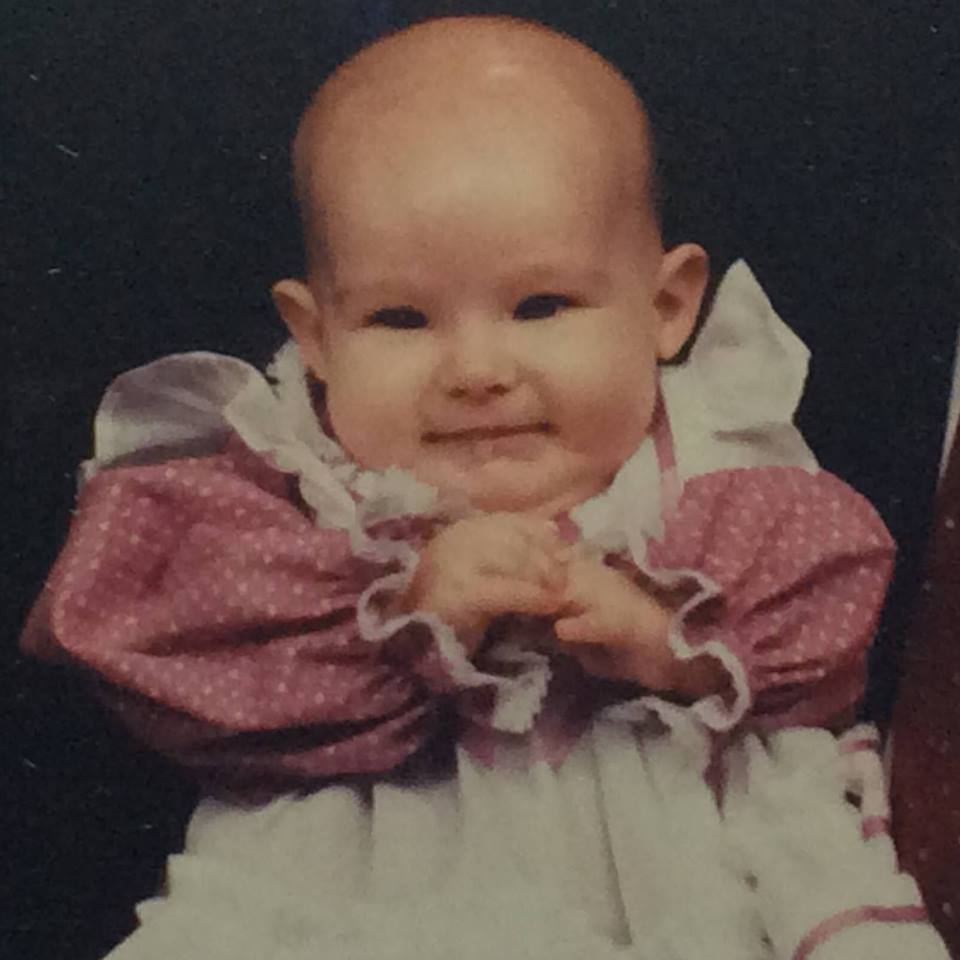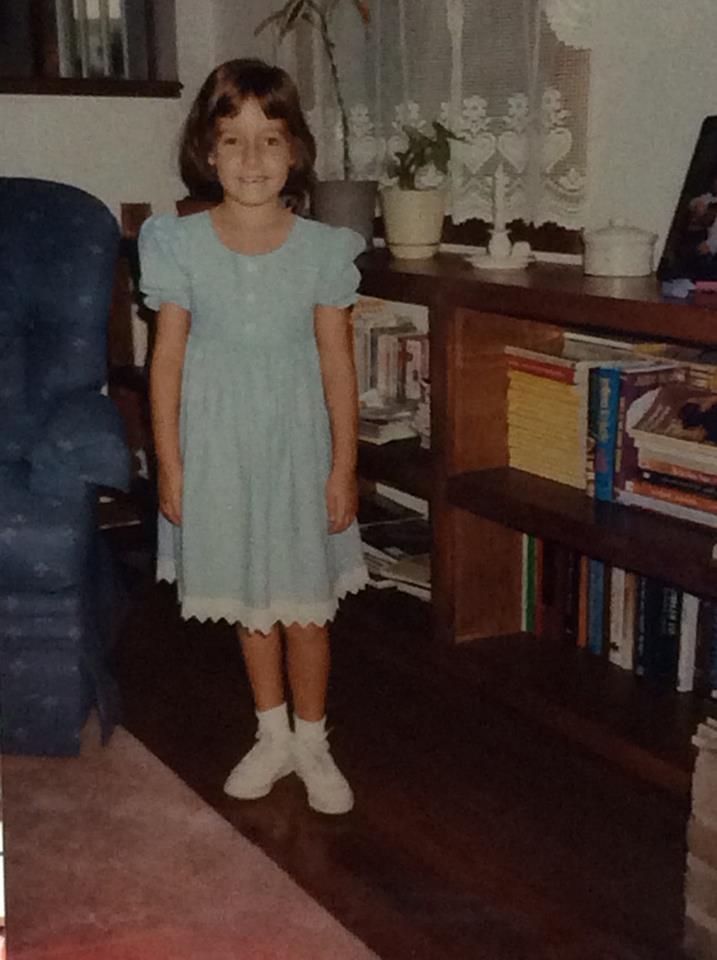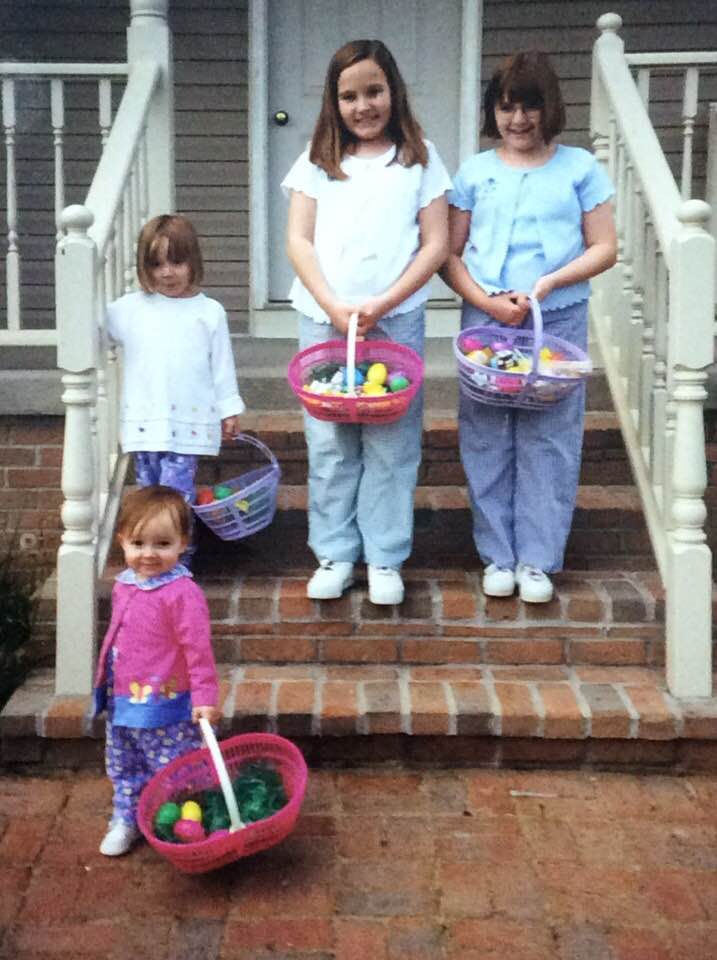“10 year old Chelsea thought that 30 year olds were full-fledged adults who had followed a traditional life trajectory after finishing high school: college, job, marriage, house, and children.”
It happened. Earlier this year I turned the “Big 3-0,” a brand new decade ushering in a new phase of adulthood that feels foreign to me. On my birthday I remember thinking “I don’t feel 30.” I didn’t have any anxiety about turning 30; it simply felt weird because I’ve realized that I have a mental disconnect from what I imagined 30 to be and where I am at 30 in my own life.
As a kid, I had a very different perception of adulthood and what 30 looked like than I do now. 10 year old Chelsea thought that 30 year olds were full-fledged adults who had followed a traditional life trajectory after finishing high school: college, job, marriage, house, and children. After all, that was the example I had grown up with in my own family and it’s what I saw in many of the families I knew. My mom and dad got married at 21 and 23, respectively, and started their first careers by the time I was born five years later, followed by my sister shortly thereafter. While my family was considered lower-middle class, my parents were able to save enough money to build our house, which we moved into before I started kindergarten. That’s what 30 looked like to me as a kid. Looking back on my ideas of adulthood, they were defined by what I considered to be a sense of establishment and stability in both professional and personal life.
Fast-forward 20 years and the early adulthood that my parents experienced definitely does not reflect my own experience. Financially speaking, there are a lot of factors that contribute to this disconnect, such as living in different parts of the country with drastically different costs of living, being financially independent and self-reliant as opposed to living in a dual-income household, and accumulating student debt. It’s not just the finances though; I’m in a different place in my life mentally and emotionally, which influences both the relationships I’ve formed and the support system I’ve built for myself.
The cost of living in Washington, DC is extremely high and for most millennials it means having roommates and sharing spaces. Home ownership is relatively affordable in my home state of Ohio and I have many peers there who have reached this benchmark. I feel much more on par with my DC peers, few of whom have been able to afford home ownership. For the past three years I have lived in a sunroom, sharing an apartment with two roommates. I basically live in a greenhouse: it’s mostly windows with sliding glass doors that separate my bedroom from the living area. My goal was to have a bedroom with a real door by the time I was 30, which I thought was a low-bar, achievable goal. I didn’t hit that benchmark.
“My goal was to have a bedroom with a real door by the time I was 30, which I thought was a low-bar, achievable goal. I didn’t hit that benchmark.”
While I am still a little sour about not having a more temperate room with a door that has hinges, the choice to continue with this living arrangement was very purposeful and has afforded me more financial benefits than I would otherwise have. My rent is relatively low, which allows me to allocate funds to other priorities, such as saving for my own home and retirement, chipping away at my student loans, and having the flexibility to travel and be social. Even though the living situation itself does not make me feel like much of an adult, the process of prioritizing other financial goals does.
This feeling of missing milestones that my parents had reached is, actually, not entirely new. During my 20s, I remember hitting ages where my parents took major life steps and thinking that I was nowhere near where they were. My mom was 21 (“basically 22,” in her words) when she got married; I turned 21 while studying abroad in Luxembourg. In their mid-20s, my parents had started their first careers and were thinking about starting a family. My mom even moved on to a second career by her mid-20s and completed her master’s degree to pursue a path that she was more passionate about. When I was 24, I moved to Washington, DC to start a graduate program and received my master’s degree at 26, the same age at which my mom gave birth to me. My mid-20s were largely spent focusing on my master’s degree and starting a career. I used that time to build a network of friends and professional contacts in a city that was previously unfamiliar to me. While I was in a relationship during that time, I, at times, prioritized my academic work and professional life more than my personal life and sometimes felt it difficult to strike a healthy balance.
By 30, my parents had two children and would later go on to have two more. At 30, I have struck a better balance between my personal and professional life and am investing time in both aspects of my life. I’m starting to think about marriage and starting my own family in the next few years and I’m in a serious relationship with someone who I hope will be part of that future family. I know that I want kids, but at 30, I don’t feel ready yet, financially or emotionally.
“I have continued to work one, sometimes two, part-time jobs for the past three years. Nowadays it’s called a ‘side hustle.’”
Another part of the mental disconnect is related to where I am in my professional life. As a kid, I thought that 30 year olds were several years into their jobs and moving forward, in a linear fashion, in their careers. 30 year olds were real adults in my mind, who held important jobs and were already established in their professions. While I do know people who fit that mold, I and many of my peers do not. My path has not followed a clear trajectory and I have had many jobs that I consider to be “nontraditional” in the years since I graduated from college. I was an AmeriCorps service member and a substitute teacher prior to attending graduate school. After graduate school, I worked in federal consulting, and I am now employed at a non-profit that works on higher education issues. None of the jobs I’ve had really align with my bachelor’s or master’s degrees. In my current role, I often feel like a glorified administrative assistant, providing customer service to higher education institutions. I thought adults did more important work than that. Therein lies perhaps the greatest disconnect: my career trajectory does not make me feel like an adult.
Not to mention the variety of part-time jobs and internships I’ve held throughout my 20s and still hold. Growing up, I thought that part-time jobs were for high school and college students only, as I didn’t know any adults working in part-time positions. I’ve had multiple part-time or short-term jobs since graduating from college and I have continued to work one, sometimes two, part-time jobs for the past three years. Nowadays it’s called a “side hustle.” I have taken on part-time work not because of financial necessity, but for personal interest and “fun money.” The extra money I make each month is put toward the “extras” that always seem to pop up, such as gift-giving or travel. I sometimes feel like a teenager going to a Saturday job, but at the end of the day, I’m happy to have a little more financial flexibility.
I know I am not alone in saying that 30 is not what I expected it to be. As a generation, millennials are experiencing life landmarks later than prior generations and postponing benchmarks such as home ownership and children for a variety of reasons, including job opportunities and student debt. I do have friends who have hit those traditional landmarks, going to college, starting jobs, getting married, buying their first home, having kids, and establishing their careers -- in that order. Many of those friends are back in Ohio, where the cost of living is much lower than in Washington, DC and different social norms contribute to different priorities. In my experience in Washington, DC, for example, there is an emphasis on education and career development before other milestones.
30 feels complicated. Personally and professionally, I’m not where I imagined I would be. The professional side is a challenge that I’m continuing to work through. On the personal side, I’m feeling pretty content, but I don’t yet feel the sense of establishment that I associate with adulthood. I’m not sure when I will, but as the saying goes, “it’s the journey, not the destination.” To me, this is 30.
Chelsea Fowler is a non-profit researcher with an enthusiasm for women’s history and free museums.








